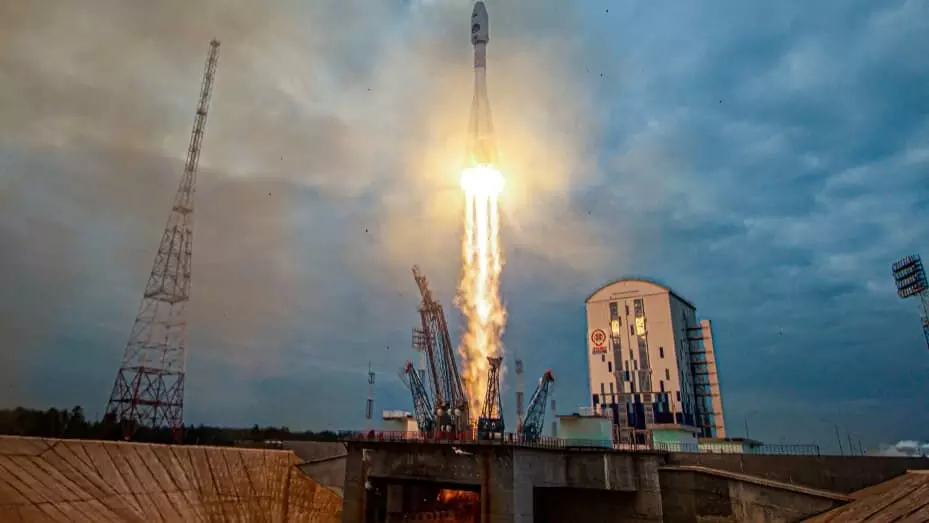
Russia's Luna-25 Moon mission faces anomaly ahead of planned landing
text_fieldsRussia's Luna-25 spacecraft encountered an "abnormal situation" on Saturday while preparing to transition to its pre-landing orbit, said Russia's national space agency Roskosmos.
The spacecraft is scheduled to land on the moon's southern pole on Monday. This endeavour is part of a competitive international effort to explore a part of the moon speculated to contain frozen water and precious elements.
"During the operation, an abnormal situation occurred on board the automatic station, which did not allow the manoeuvre to be performed with the specified parameters," Roskosmos said in a short statement.
The space agency is currently examining the situation, though specific details were not provided.
Earlier, Roskosmos revealed that initial findings from the Luna-25 mission had been obtained and were under analysis.
The agency also shared images taken from the spacecraft of the moon’s Zeeman crater. The crater is the third deepest in the moon's southern hemisphere, it said, measuring 190 km (118 miles) in diameter and eight km (five miles) in depth.
Roskosmos disclosed that the data received so far had provided insights into the chemical composition of the lunar soil, which would aid in the functioning of instruments designed to study the moon's near-surface.
The agency's equipment detected "the event of a micrometeorite event," it added.
The Luna-25 entered the moon's orbit on Wednesday, the first Russian spacecraft to do so since 1976.
About the size of a compact car, it aims to operate for a year at the moon's southern pole, an area where recent scientific efforts by NASA and other international space organizations have identified indications of frozen water within craters.
The presence of water on the moon holds substantial implications for leading space powers, potentially paving the way for extended human missions on the lunar surface and facilitating the mining of valuable lunar resources.
 Also Read: 7 killed, over 100 injured in missile attack on Ukraine's Chernihiv
Also Read: 7 killed, over 100 injured in missile attack on Ukraine's Chernihiv























